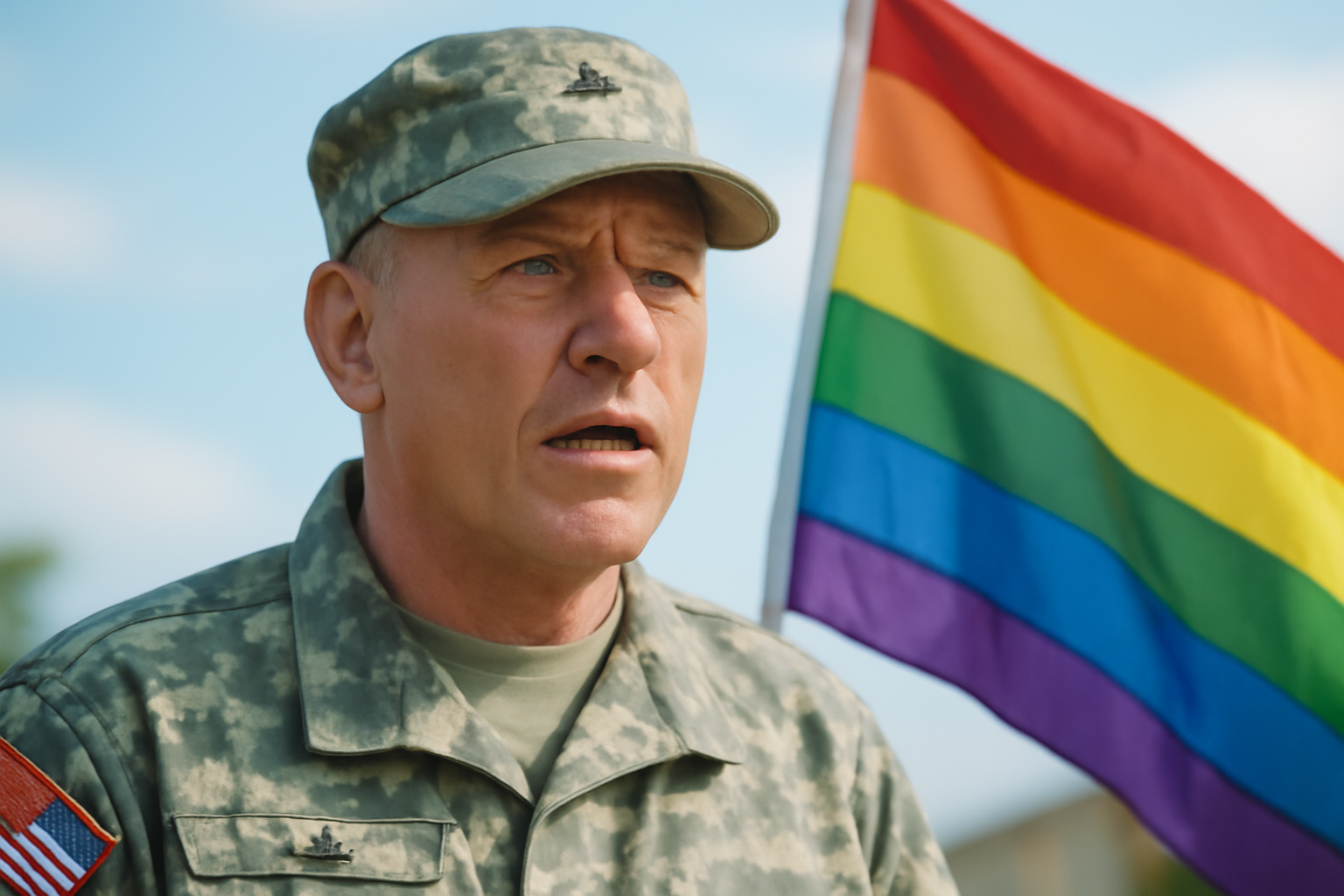
In a controversial move, a new policy has been enacted to ban transgender individuals from serving in the military. This decision has sparked widespread criticism not only for its discriminatory nature but also for the potential impact on military readiness during a time when recruitment numbers are already alarmingly low.
The policy, issued by the current administration, has mandated a 60-day period for implementation, raising concerns about its implications for those willing and able to serve. Critics argue that the ban is not only unjust but could further exacerbate recruitment challenges.
The Reality of Military Recruitment
Despite the policy, the reality remains that cisgender men are not enlisting in the numbers needed to sustain the military's operational readiness. Instead, there is a notable willingness among women and LGBTQ+ individuals to take on these roles.
Veteran Jos Joseph, who served as part of the 1st Marine Division staff, has spoken out about these issues based on personal experience. During his service years, he witnessed the military's exclusion of capable LGBTQ+ servicemembers, a practice he found "baffling" as recruitment struggled to meet demands during the Iraq conflict.
Joseph recalls, "We were desperate for recruits, yet those ready to serve were being turned away due to outdated policies. It was clear then, as it is now, that many who claim patriotism are hesitant when it comes to serving."
Lessons from History
The Vietnam War era provides a historical precedent for understanding current challenges. Initially reliant on conscription, the military transitioned to an all-volunteer force after recognizing that many men did not volunteer willingly. This led to the creation of incentives such as education benefits and healthcare to attract recruits.
In the wake of the conflicts in Afghanistan and Iraq, a similar pattern emerged. Women began filling non-combat roles and eventually combat positions due to necessity, proving their capability and challenging traditional gender roles.
"The military learned two key lessons," Joseph notes. "First, women excelled in combat roles. Second, the LGBTQ+ community was eager to serve where others hesitated."
Rethinking Strength and Patriotism
There is a growing recognition that traditional notions of masculinity and patriotism may not align with the realities of military service today. As male enlistment declines, experts suggest a broader "crisis of masculinity" could be contributing to the recruitment challenges.
Ronald Levant, a psychologist, points out that young men are experiencing a change in motivation and engagement, which extends beyond military recruitment. Katherine Kuzminski adds that military service tests individuals in ways that commercialized displays of strength do not.
"The challenge now is to embrace diversity within the ranks," says Joseph. "If the military wants to maintain its readiness, it must rely on those willing to serve, irrespective of gender or sexual orientation."
The Path Forward
As the military navigates this period of transition, the need for an inclusive approach becomes increasingly apparent. Embracing diversity not only strengthens the force but also aligns with the core values of service and honor.
Joseph concludes, "Real patriotism is about action, not appearance. It's time to recognize the contributions of all who are ready to serve and ensure that outdated biases do not hinder our military's future."
As these debates continue, the hope is that policies will adapt to reflect the diverse capabilities and dedication of all potential servicemembers, ensuring a robust and inclusive military for the future.
Related Posts
Triumphant Trans Woman Wins Legal Battle and Inspires Others to Stand Up for Their Rights
Breaking new ground: a landmark victory in transgender rights After battling in courtrooms and enduring endless challenges, Diana Portillo, a transgender woman, has secured a monumental victory in her decade-long fight against workplace discrimination. The result? Nearly $1 million awarded in a historic settlement. But this isn't just a win on paper—it represents a powerful precedent in combati [...]
Pride Month in Latin America: Protests and Demands for Equality
**Celebrating Pride and advocating LGBTQ+ rights in Latin America** Pride Month in Latin America was a lively mix where celebration met activism. Communities united, not just throwing a party but making a stand—demanding equality and pushing governments toward better protection and rights recognition. Throughout Latin America, pride events erupted in marches and cultural displays, each with a c [...]
Transgender Erasure Actions Implemented by National Park Service
```html Trump administration's impact on national park service and transgender recognition The Trump administration made notable moves in undermining transgender representation, which included directing agencies like National Park Service not include "T" and "Q" when they refered “LGBTQ” in any official communication. This move seems part a broader plan by this administration aimed at reducin [...]